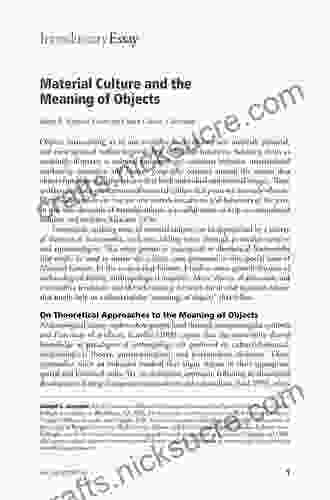Autism spectrum disorder (ASD) is a developmental disorder that affects a person's social and communication skills. People with ASD may also have problems with repetitive behaviors and interests. There is no cure for ASD, but there are treatments that can help people with the disorder manage their symptoms.
One of the treatments that has been shown to be effective for some people with ASD is a special diet. These diets can help to improve behavior by reducing inflammation and improving gut health.
4.2 out of 5
| Language | : | English |
| File size | : | 9991 KB |
| Text-to-Speech | : | Enabled |
| Enhanced typesetting | : | Enabled |
| Word Wise | : | Enabled |
| Print length | : | 47 pages |
| Lending | : | Enabled |
| Screen Reader | : | Supported |
How Diet Can Help Control Behavior in People with ASD
There are several ways that diet can help control behavior in people with ASD. First, a healthy diet can help to reduce inflammation. Inflammation is a major factor in many chronic diseases, including ASD. When inflammation is reduced, it can improve behavior and reduce the risk of developing other health problems.
Second, a healthy diet can help to improve gut health. The gut microbiome is a complex community of bacteria that live in the intestines. These bacteria play a role in many aspects of human health, including digestion, metabolism, and immunity. When the gut microbiome is healthy, it can help to improve behavior and reduce the risk of developing other health problems.
Third, a healthy diet can help to provide the nutrients that people with ASD need to function properly. Many people with ASD have nutritional deficiencies, which can lead to problems with behavior and learning. A healthy diet can help to correct these deficiencies and improve overall health.
What Foods to Include in a Diet for People with ASD
There is no one-size-fits-all diet for people with ASD. The best diet for a particular individual will depend on their specific needs and preferences. However, there are some general guidelines that can be followed when creating a diet for someone with ASD.
The following foods are generally considered to be good for people with ASD:
* Fruits and vegetables * Lean protein * Whole grains * Healthy fats * Dairy products (for people who are not lactose intolerant)
The following foods should be avoided or limited in a diet for people with ASD:
* Processed foods * Sugary foods * Junk foods * Artificial sweeteners * Food additives
Special Diets for People with ASD
There are a number of special diets that have been developed for people with ASD. These diets include:
* The gluten-free, casein-free diet (GFCF diet) * The ketogenic diet * The modified Atkins diet * The low-FODMAP diet
The GFCF diet is a diet that eliminates gluten and casein from the diet. Gluten is a protein found in wheat, rye, and barley. Casein is a protein found in milk and dairy products. Some people with ASD have an intolerance to gluten and/or casein, which can lead to problems with behavior and digestion. The GFCF diet can help to improve behavior and digestion in these individuals.
The ketogenic diet is a high-fat, low-carbohydrate diet. This diet has been shown to be effective in reducing seizures in children with epilepsy. Some studies have also shown that the ketogenic diet can help to improve behavior in people with ASD.
The modified Atkins diet is a low-carbohydrate diet that is similar to the ketogenic diet. However, the modified Atkins diet allows for more carbohydrates than the ketogenic diet. This diet has also been shown to be effective in improving behavior in people with ASD.
The low-FODMAP diet is a diet that eliminates certain types of carbohydrates from the diet. FODMAPs are fermentable oligosaccharides, disaccharides, monosaccharides, and polyols. These carbohydrates are found in a variety of foods, including fruits, vegetables, and grains. Some people with ASD have an intolerance to FODMAPs, which can lead to problems with digestion and behavior. The low-FODMAP diet can help to improve digestion and behavior in these individuals.
How to Choose the Best Diet for a Person with ASD
The best diet for a person with ASD is one that meets their individual needs and preferences. It is important to work with a healthcare professional to develop a diet that is right for your child.
When choosing a diet for a person with ASD, it is important to consider the following factors:
* The person's age * The person's weight * The person's health history * The person's food preferences * The person's family's lifestyle
It is also important to be patient when trying a new diet. It may take some time for a person to adjust to a new way of eating. It is important to stick with the diet for at least a few weeks to see if it is effective.
Diet can play an important role in managing behavior in people with ASD. By choosing a healthy diet that meets their individual needs, people with ASD can improve their overall health and well-being.
































































































































































































































































































































































































































































































































































